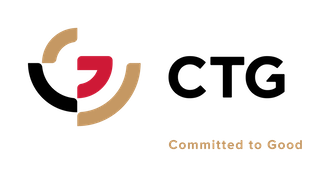| CTG Overview |
CTG stands for Committed To Good. With an ethical approach at the heart of all that we do, it is a description that makes us proud. Respect for the fundamental human rights of our staff, and those our staff encounter, is a cornerstone of our values. We strive for gender equality, inclusion and diversity, providing fair and equal opportunities for all. We take a zero tolerance approach to corruption and stay true to local labour laws and all local statutory requirements.
In operation since 2006, today we are honoured to serve clients in 15 fragile and conflict-affected states assisting with disaster relief, peace building, humanitarian aid and development programmes through our specialised recruitment, HR management and operational services. |
| Overview of position |
The main purpose of the assignment is to analyse the water and resilience sectors in Somaliland from a gender equality and women empowerment perspective. This involves looking closer at the policy and legal frameworks governing the sectors, if and how gender equality and anti-discrimination policies and relevant international treaties are implemented. The analysis should also focus on how, and to what extent,the different gender needs and interests of women and men (and girls and boys as appropriate), in all their diversity, as citizens, clients, consumers, workers and managers, suppliers, are met within these two sectors. The GSA should provide an understanding of the current and potential impact of the sector on gender equality, and conversely the impact of gender inequality on the sector (e.g. in terms of lost expertise, markets, engagement). It explores and documents gender gaps and barriers in policy and practice, and the impact of discriminatory social norms and attitudes for employment, work force segregation, and leadership in the sector. It assesses who benefits from the service or provision and why. And, importantly, it identifies what opportunities exist in the sector to promote gender-sensitive, gender-responsive and gender-transformative outcomes, good or promising practices, and entry points and opportunities for EU cooperation to promote gender equality using all instruments and investment frameworks and policy dialogue.
The GSA should interrogate how gender inequality intersects with other inequalities on the grounds of age, disability status, ethnicity, caste, belief, sexual orientation, etc., as relevant to the sector. Likewise, it is critical to explore gender differences between rural and urban situations, the impact of geographical and environment factors and conflict, and the position of minority and marginalised communities. Every sector – infrastructure, trade, energy, agriculture, financial, ICT, security, etc. – can contribute to building greater equality; it can also deepen existing gender inequalities and reinforce explicit and implicit barriers if the needs and priorities of women and men in all their diversity are not heard, understood and addressed.
The GSA is intended as an analytical and operational document.The Consultant will be under the direct supervision of the EU Delegation to Somalia & our client and he/she must be able to work independently to deliver the below duties and responsibilities:
|
|
| Role objectives |
- Assess and document the sector’s importance to the national (and regional) economy and social fabric, the incorporation of national (and regional) gender equality and anti-discrimination policy frameworks and legislation into sectoral policy and practice, including compliance with relevant ILO and UN Conventions1, and the effectiveness of any existing regulatory frameworks and monitoring, and evidence of sectoral good practices. Identify and document key gender-based discrepancies, barriers and challenges that need to be addressed by the sector at national and sector policy and practice levels to ensure women and men, in all their diversity, can participate and benefit equally as citizens, clients, consumers, workers, managers, suppliers. Particular attention should be paid to different backgrounds and other diversity factors, such as age, ethnicity, belief, income level, disability status, sexual orientation, etc.
- Identify gaps in research and disaggregated data in the sector concerning gender equality, and the capacity of the National Statistics Office, and propose how these could be addressed.
- Identify, through participatory methods, key entry points and strategies to address gender gaps in the sector.
- Define where and how EU engagement can support the sector to mainstream and monitor gender across its policy, processes and operations, using the full range of EU instruments and investment frameworks, and political and policy dialogue.
|
|
| Project reporting |
The successful candidate will report to the Project Manager |
|
| Key competencies |
The assignment will be entirely delivered in English. |
| Team management |
This role has no team management responsibility
|
|
| Further information |
Experience
- A minimum of 5 years of experience in gender analysis and social and/or economic development;
- Specific experience and expertise on gender analysis, gender mainstreaming, and women’s rights work
- Experience of working in Somaliland;
- Knowledge of EU external relations policies, cooperation instruments and investment frameworks;
- Knowledge of EU Gender Action Plans II and III;
- Excellent writing, research and analytical skills;
- Facilitation skills;
- Knowledge of climate change, environmental and water sector related issues
Geographical Experience
- Knowledge of the Horn of Africa Region
Education
- At least a Master’s degree in social and/or economic development, or any other field related to this assignment
Language Requirements
|
|



